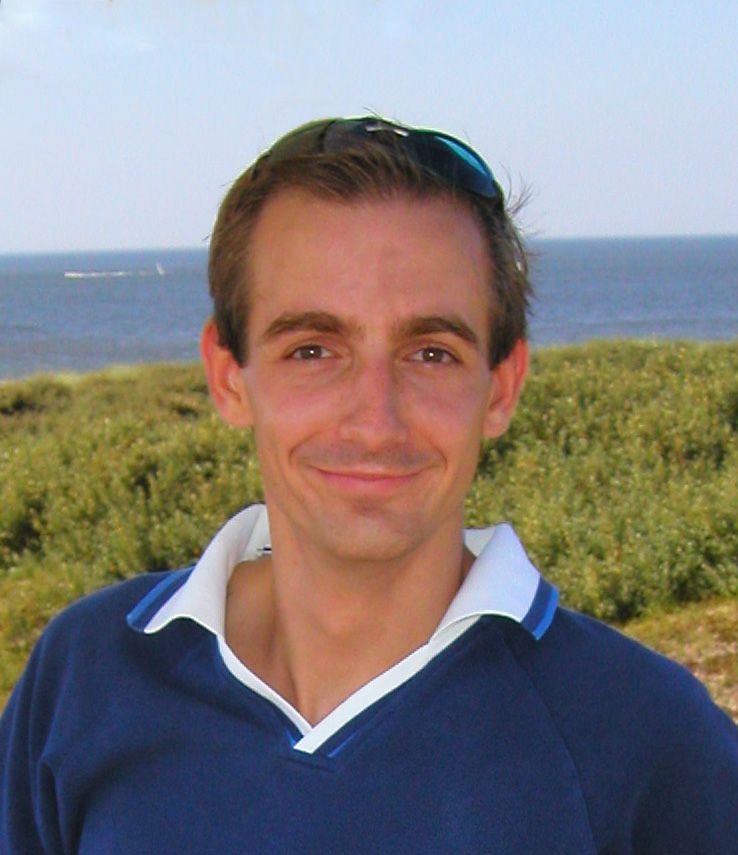Ladislav Wintr
Ladislav Wintr
|
Originally from Přerov, Ladislav Wintr graduated from the IES in 2002. His Master’s thesis was awarded the Dean’s honors and the Karel Engliš Award by the Charles University Rector for the best M.A. thesis. During his studies, Ladislav spent one semester in Ireland at the University of Limerick in the framework of the Erasmus program. While studying, he was also working as a programmer. After finishing the IES, he continued his studies in the USA. He got another M.A. degree at Clark University and received his Ph.D. from the same university in 2006 in the field of applied econometrics and industrial organization. In 2004 he was a trainee at the Central Bank of Luxembourg, where he, among others, analyzed pricing in the e-commerce. After finishing his Ph.D. in the USA, he worked at the National Bank of Belgium as an economist/researcher and came back to the Central Bank of Luxembourg as an economist in 2008. Here he conducts research in the field of monetary policy and labor economics. Ladislav spends his free time with his family, and when he has some spare time, he enjoys digital photography, cycling and hiking. |
You studied in the Czech Republic, in Ireland, and in the USA. Was it different or is the system of education in principle the same?
While it is always difficult to generalize, I found a striking difference between the educational systems in the US and the Czech Republic in several aspects: in the attitude of students, in the time that professors devote to them and last but not least in the style of education. On average, I found students in the US better motivated. Of course, this can also be related to the non-negligible tuition that most of them have to pay. Furthermore, professors tend to spend much more time in their university offices in the US and are easily available to students after class. This can perhaps too be related to money as professors do not have to run to their second job to make ends meet. Finally, the system of education in the US is much less based on memorizing and much more on learning by solving problems in study groups with the teacher acting as a guide.
You earned your Master’s and PhD degrees at Clark University in the US. What was the most important asset that the IES gave you for your further studies abroad?
Thanks to the IES I had very good quantitative skills, excellent background in math and a broad overview of different subjects. It was comforting to see that students from the US, China or India went through the same textbooks as we did at IES. And my interest in monetary economics was sparked by the course offered by Tomáš Holub and Kateřina Šmídková.
After finishing your studies in the USA, you came back to Europe. Were you not tempted to stay and work in the USA?
On the one hand, I could very well imagine myself living in few places in the US, like Boston or New York. On the other hand, I missed the diversity of Europe, its culture, cuisine, short distances etc. So in the end it was a trade-off between the most interesting job offer and the quality of life.
Your field of specialization is applied microeconomics. This is at first sight not the most common profile of a central banker…
Economics departments in central banks no longer employ only macroeconomists or monetary policy experts. Microeconomists can make use of the increasing availability of individual data such as individual wage and price records, survey data on households and firms, bank and firm balance sheet data etc. These allow to shed new light on many questions at the heart of monetary policy. Furthermore, macro models are nowadays typically micro founded and their parameters need to be estimated.
Currently you are working as an economist at the Central Bank of Luxembourg, but you have also worked for some time at the National Bank of Belgium as an economist. Is there any difference, or is the scope of employment at both positions similar? Can you just compare the working environment?
Even though I had very similar positions in both banks, my experience was very different. The National Bank of Belgium has a relatively large number of researches who focus on their field. In contrast, the Central Bank of Luxembourg is one of the youngest and smallest central bank in the EU and the research section has less than a dozen of economists. This means that I’m exposed to different topics and combine both research and policy advice, which I personally find as a very satisfying mix.
You live with your family in Luxemburg, is there anything what you are missing in comparison to the Czech Republic, and vice versa, is there anything in Luxembourg that you would implement in your country of origin?
The public administration in the Czech Republic (but not only there) could learn a great deal from the effectiveness of the Luxembourg system. What I miss here most are my friends and family.
What is your favorite relaxing activity?
I like biking, hiking in the mountains and everything around digital photography.








